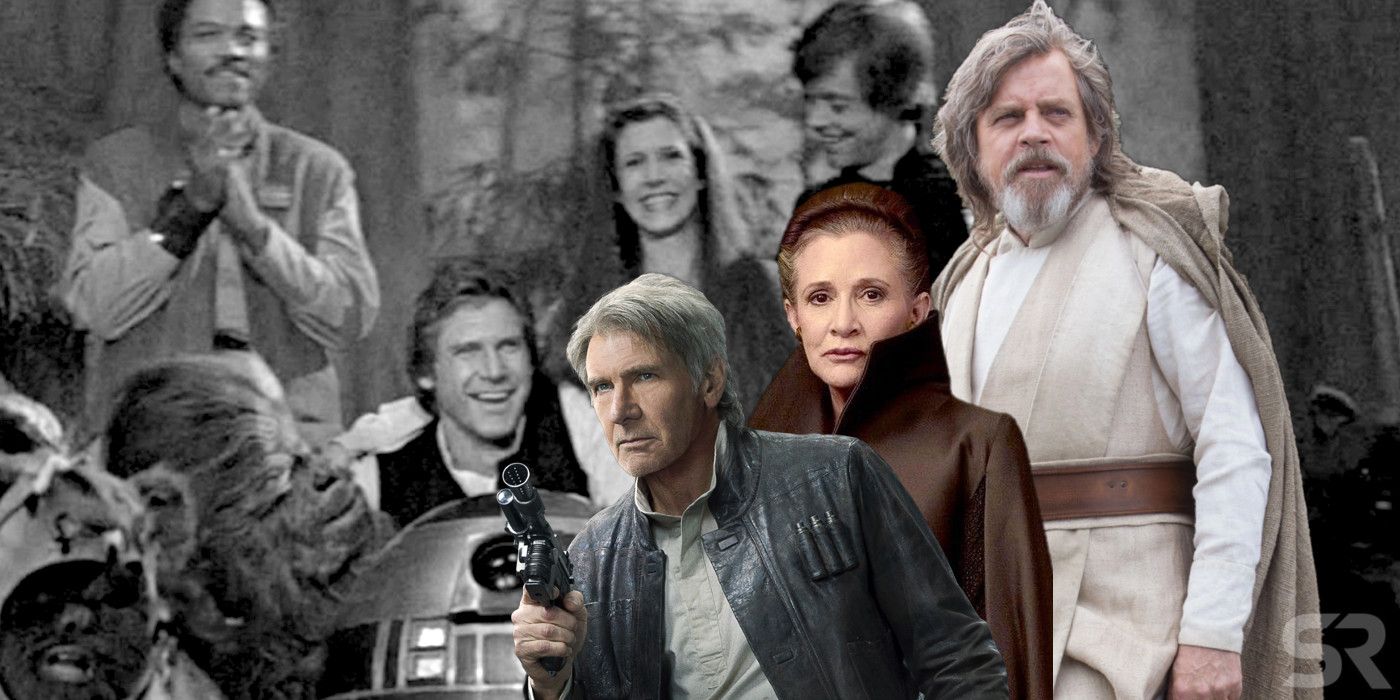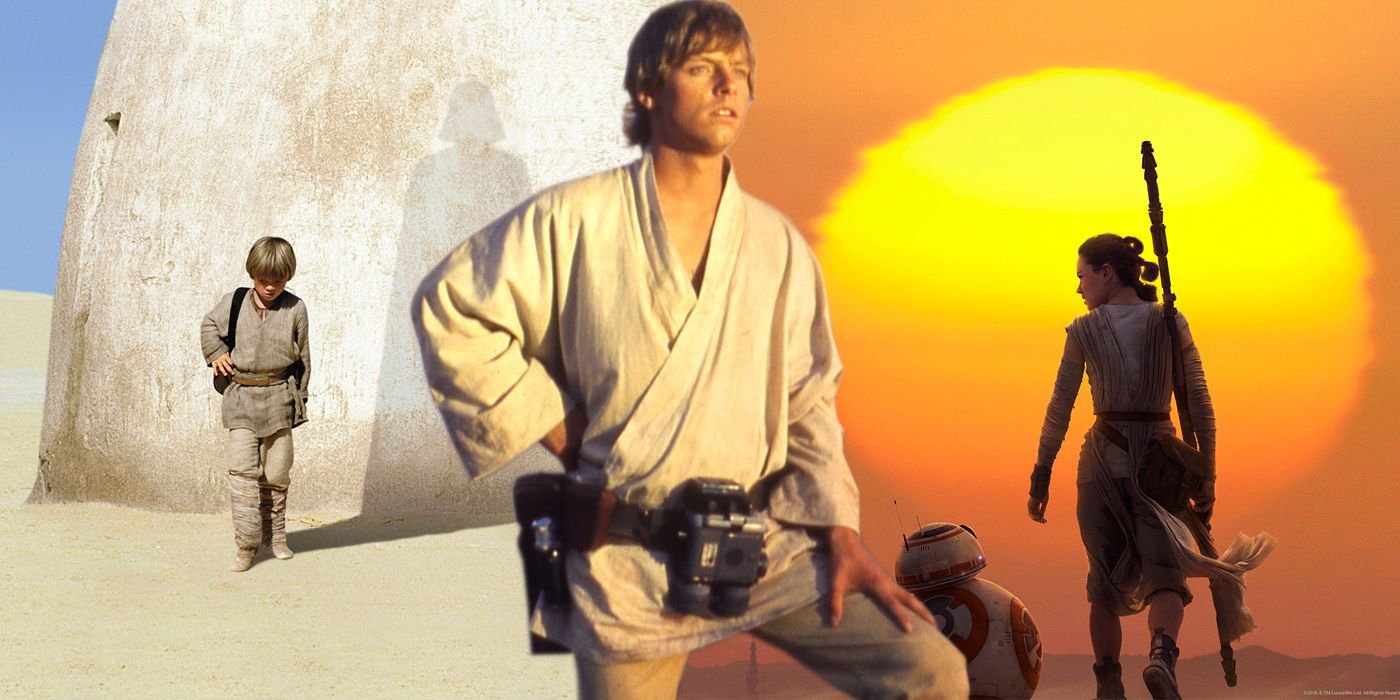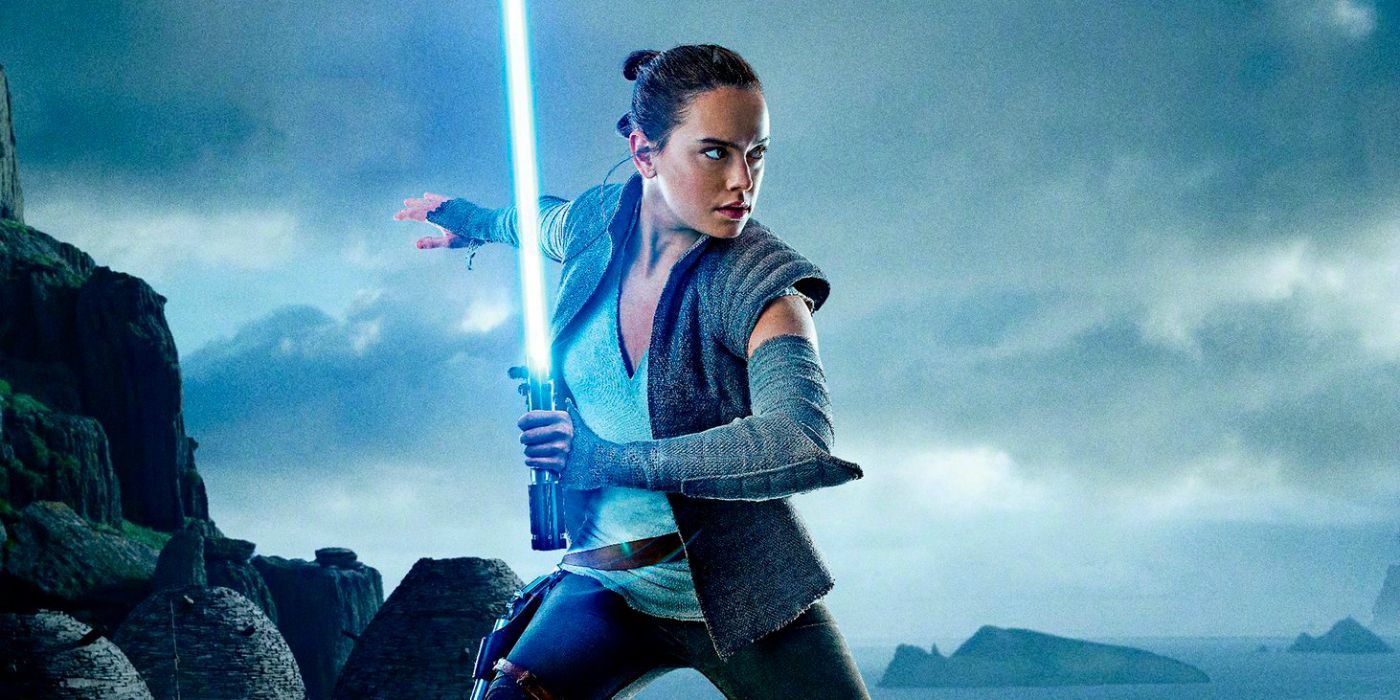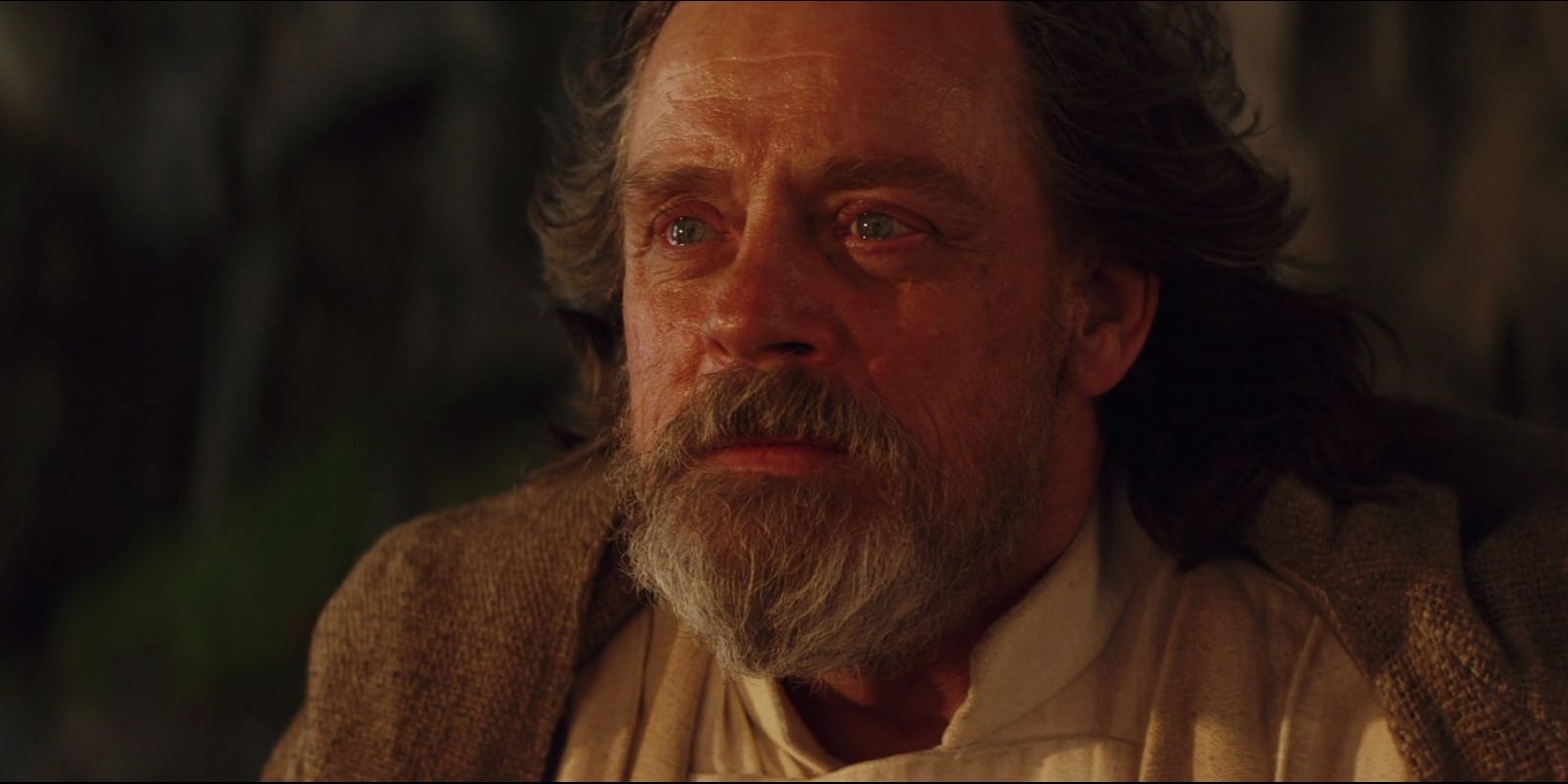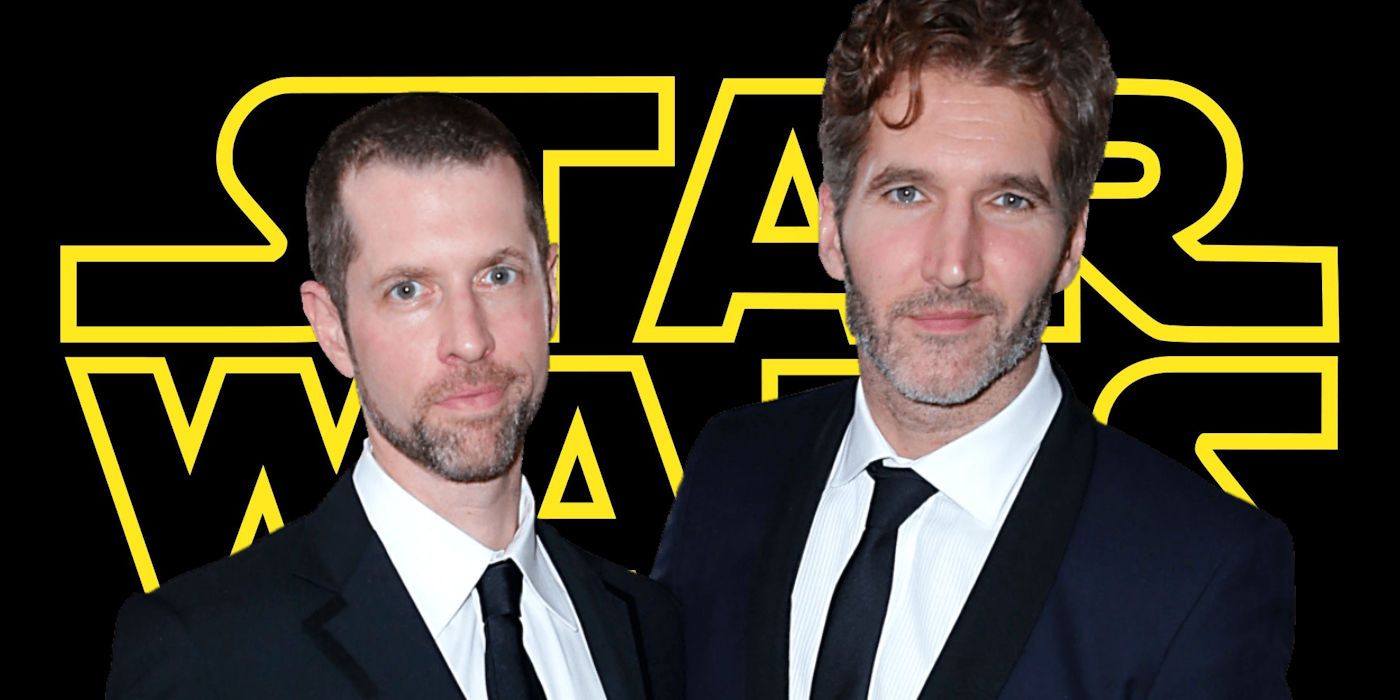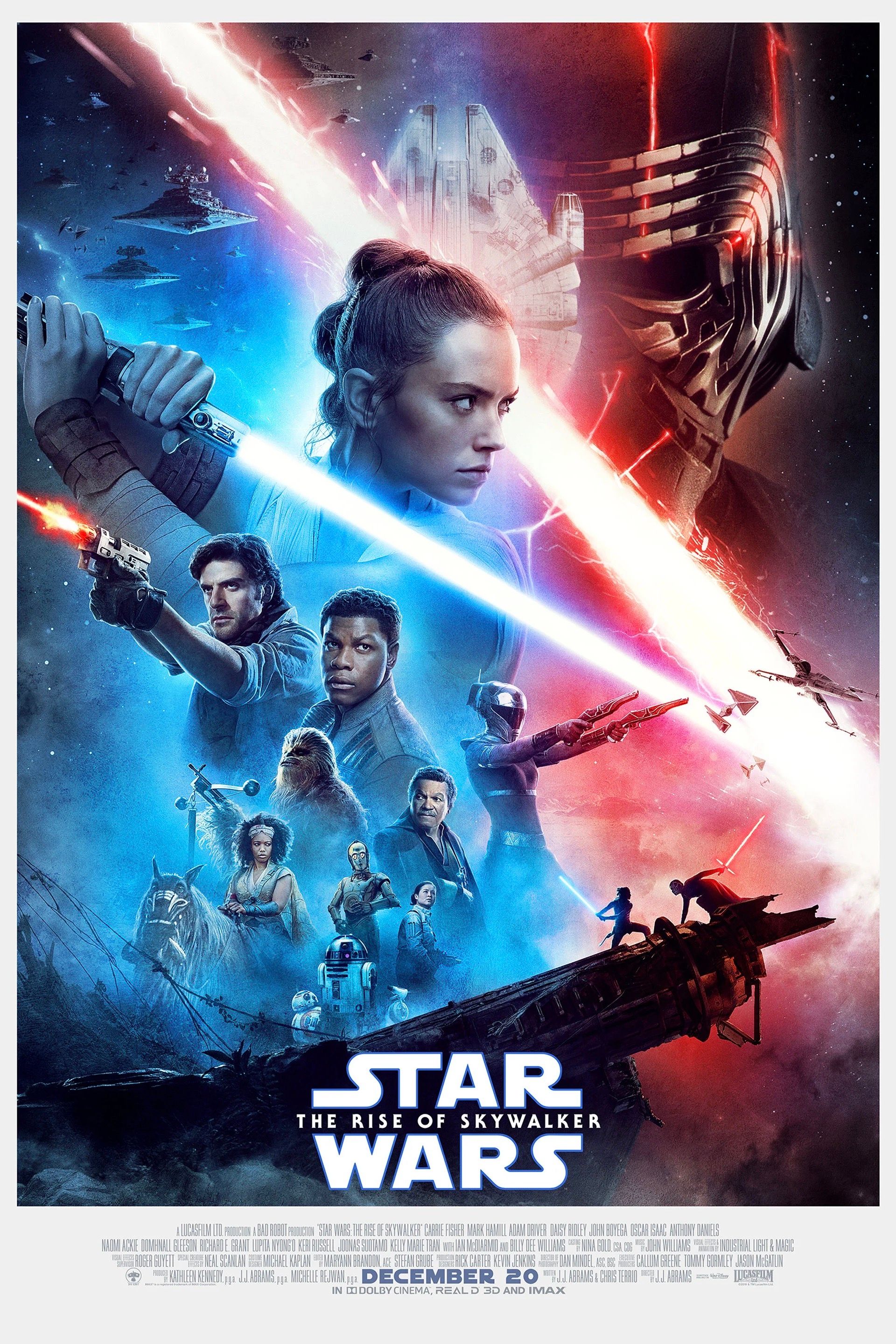Lucasfilm is finally bringing the Skywalker Saga to a close - and it's definitely the right call. When moviegoers headed to the theater to watch Star Wars in 1977, they had no idea they were watching the first film in what would become a single 9-episode story, a box office juggernaut that would be grossing billions worldwide 50 years later.
But Disney and Lucasfilm are, of course, determined to ensure the Star Wars franchise will last another 50 years at least. That means they're currently charting the future of the franchise, deciding which ideas to greenlight and which to cancel. There have been recent missteps; The Last Jedi divided the fanbase, while poor marketing undermined Solo: A Star Wars Story's box office. That's causing Lucasfilm to carefully reappraise their plans for the future.
Related: What Star Wars Movies Are Coming Out?
The latest news is that Lucasfilm is finally drawing a line under the Skywalker Saga, bringing this ongoing narrative to an end. It's a revelation that leaves that future of Star Wars itself in question; how will this franchise manage without Mark Hamill's Luke Skywalker, the late Carrie Fisher's Leia Organa, or Harrison Ford's Han Solo? This revelation is generating intense debate among Star Wars fans, who are divided as to whether this is a good idea or not. Here's why we believe it is.
This Page: Episode IX Is Indeed the End
Next Page: Looking Beyond Episode IX
Yes, Star Wars Episode IX Is Definitely The End
The Star Wars franchise has always centered on the Skywalker bloodline. The Prequel Trilogy is the story of Anakin Skywalker's rise and fall; the Original Trilogy charts Luke's growth from would-be starfighter pilot to redeeming Jedi Knight; and the Sequel Trilogy is about the Skywalker legacy, with Kylo Ren inspired by Darth Vader, and Rey by Luke Skywalker. Lucasfilm has also begun releasing "A Star Wars Story" anthology films, but so far these have felt like side-stories, lacking the grandeur and scale of the Saga movies.
But every story has to come to a close. A recent press release has finally confirmed that Episode IX will be the "conclusion" of the entire Skywalker Saga. It's a decision that has taken Lucasfilm over two years to make. As far back as November 2016, president Kathleen Kennedy openly admitted there was "a conversation" taking place behind closed doors about whether or not the "episodes" should come to an end. As Kennedy pointed out in April last year, for her a compelling argument was that George Lucas himself had only planned to make nine "episodes."
There's a sense in which this is unsurprising. The Sequel Trilogy is essentially a story of the passing of the torch, with Han Solo dying in The Force Awakens and Luke Skywalker in The Last Jedi. Whatever Lucasfilm's original plans may have been, the tragic passing of Carrie Fisher means Leia Organa's story has to end in Episode IX as well. The stars of the Original Trilogy are being written out, and the ending of The Last Jedi saw Ben Solo commit himself to the dark side. Another redemption arc seems unlikely, so it's probable the Skywalker bloodline itself will be ended in Episode IX as well. When the Sequel Trilogy comes to a close, it looks as though there won't be any Skywalkers left. For all Lucasfilm has deliberated over the Skywalker Saga, it seems likely the story beats have made the decision for them.
Related: Star Wars: The Real Meaning Of The Skywalker Name
Star Wars Episode X Would Be Ridiculous
This is undeniably the right approach. Lovers of the old Star Wars Expanded Universe have already seen what would happen if Lucasfilm chose a different path, instead focusing on the Skywalker Dynasty. For all the Star Wars novels and comics tried to "expand" the galaxy, the relentless focus upon the Skywalkers and the Solos ultimately led to the galaxy feeling rather small. Every character mattered because of their relationship to the wider Skywalker bloodline, and every significant being was known to Luke, Leia, or their children. It felt as though everyone important in the galaxy orbited around this Skywalker dynasty.
Meanwhile, events that didn't feature the Skywalkers and the Solos just didn't feel important to the franchise's overarching narrative. Whenever anything of a truly galactic scale was going down, Luke, Han and Leia would be on hand; readers relegated everything else to side-stories. Making matters even worse, however hard Star Wars publisher Del Rey attempted to get readers to connect to the new characters, they found sales were always better if the heroes of the Original Trilogy were on hand. Readers just wouldn't move on, and the franchise's growth suffered as a result.
It's essential Lucasfilm avoid the same mistakes. Star Wars begins with the Skywalker dynasty, but it doesn't have to end with it; instead, it should grow from it. The films should do precisely what the old novels and comics attempted to do; they should "expand" the galaxy, introducing new concepts, new Force-abilities, previously unseen corners of the galaxy, new worlds and new races. Every one of George Lucas's Star Wars films added so many new ideas to the galaxy, and the ongoing movies should follow in his footsteps and do the same.
Next Page: The Future of the Star Wars Franchise
Star Wars Fandom is Divided on the Skywalker Saga
Ironically, one of the greatest issues facing the Sequel Trilogy is that fans care too much about the Skywalkers and the Solos. They've had decades to imagine what the legacy of Luke, Han, and Leia would look like, and as a result, when Lucasfilm actually revealed that legacy, it was something of a disappointment. For Leia and Han, for example, the fiery romance had ended in them drifting apart after their son fell to the dark side; the galactic peace Leia had fought so hard for had been destroyed by an Empire Redux.
But nothing has been more controversial than Luke Skywalker. J.J. Abrams, writer/director of both The Force Awakens and Episode IX, is well known for his "mystery box" plots. He sets up a mystery, such as Luke's self-imposed exile, with no idea what the outcome will be. As a result, Rian Johnson was faced with an unenviable challenge; how to explain why Luke had abandoned the galaxy in its hour of need, not even returning after the destruction of the Republic capital. Johnson's answer was that Luke was essentially punishing himself, unable to forgive himself for a moment of weakness that he believed had tipped the galaxy towards the dark side. Luke had even gone so far as to cut himself off from the Force, explaining why the use of Starkiller Base didn't draw him out after he sensed millions of deaths. It most certainly wasn't what fans had expected, and as a result, The Last Jedi has divided the fanbase. As writer-director Kevin Smith explained, "Some people, it hit them the wrong way in a big way. I’ve seen, it’s not just people going like, ‘Oh, I didn’t like it,’ when they don’t like it. It’s vitriolic, as if somebody f-cked up their childhood."
Related: No, Luke Skywalker Didn't Change Personality For The Last Jedi
In truth, there was probably no way to please everybody with the Sequel Trilogy. This is Star Wars, not Star Peace, so the galaxy was always going to have to be embroiled in a new conflict. Good drama and storytelling necessarily subverts expectations. Still, given the controversy with which this has all been received, Lucasfilm is wise to draw a line under the Sequel Trilogy and move on to new projects. The Skywalker Saga will be completed with Episode IX, so why draw out the controversy by continuing that legacy? It's better for Lucasfilm to develop other projects, ones that aren't weighted down by decades of fan expectations.
The Future of Star Wars is More Exciting Without the Skywalkers
The end of the Skywalker Saga means that anything can happen in the future of the Star Wars franchise. Reports that Disney was shutting down the anthologies seem to have been premature, and there's some evidence the Obi-Wan Kenobi spinoff may begin filming sometime in 2019. Meanwhile, Lucasfilm has plans for two entirely new series of Star Wars movies. Rian Johnson is launching a new trilogy, one set apart from the Skywalker Saga and potentially exploring a previously unseen corner of the galaxy. David Benioff and D.B. Weiss, best known for Game of Thrones, are preparing to launch another series of movies.
With the Skywalkers written out of these stories, anything is possible. These tales could be set in the distant past, revealing the secret origins of the Jedi and the Sith; or they could be based in the distant future, revealing what happened to the galaxy centuries after the passing of the Skywalkers and the Solos. Films could be based in the Unknown Regions, introducing new races and terrible new threats; they could deal with whole new concepts, such as an alien invasion by the Grysks. The anthologies have already deepened our understanding of Force lore, with Rogue One introducing the Guardians of the Whills. Future films could go further; would they even need to focus on the Jedi, or could they instead celebrate other Force cults?
If Lucasfilm's approach pays off, there will come a time when viewers experience Star Wars in a different way. Rather than experience it as the Skywalker Saga, with some add-ons and side-stories, they'll instead be welcomed into a massive cinematic franchise - with the Skywalker Saga serving as the seed from which the whole thing has grown. This, hopefully, is a vision that will ultimately unite the currently divided Star Wars fanbase.

